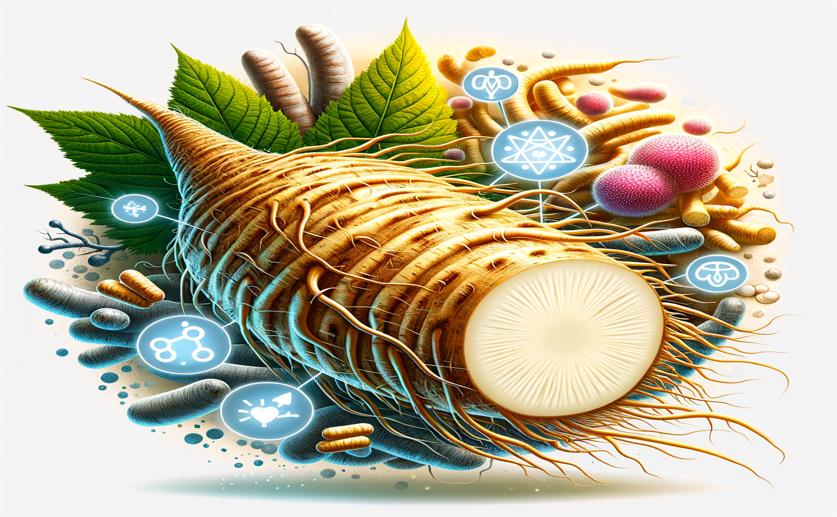
How Burdock Root Fibers Affect Immune Responses via Gut Bacteria and Metabolism
Greg Howard
2nd May, 2024

Image Source: Natural Science News, 2024
Key Findings
- Researchers at Shandong Agricultural University found that ALP-1, a burdock root polysaccharide, boosts immune health in mice
- ALP-1 intake increased protective mucus production and antibody levels, enhancing the body's defense mechanisms
- The study also showed ALP-1 improves antioxidant activity and positively alters gut bacteria, which may help against inflammation
References
Main Study
1) Integrated Mechanism of Immune Response Modulation byArctium Lappa L. Fructans Based on Microbiome and Metabolomics Technologies.
Published 1st May, 2024
https://doi.org/10.1021/acs.jafc.4c01299
Related Studies
2) Dendrobium officinale Xianhu 2 polysaccharide helps forming a healthy gut microbiota and improving host immune system: An in vitro and in vivo study.
3) Bioactive polysaccharides and oligosaccharides from garlic (Allium sativum L.): Production, physicochemical and biological properties, and structure-function relationships.
4) Structural characterization and antioxidant activities of one neutral polysaccharide and three acid polysaccharides from the roots of Arctium lappa L.: A comparison.



 24th January, 2024 | Greg Howard
24th January, 2024 | Greg Howard